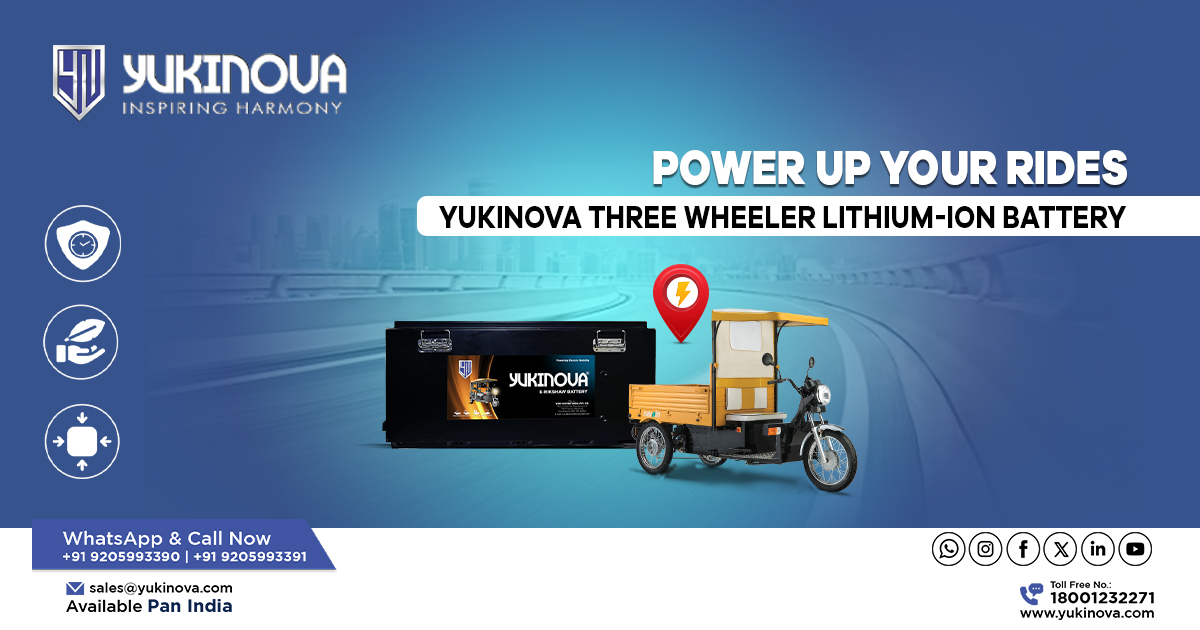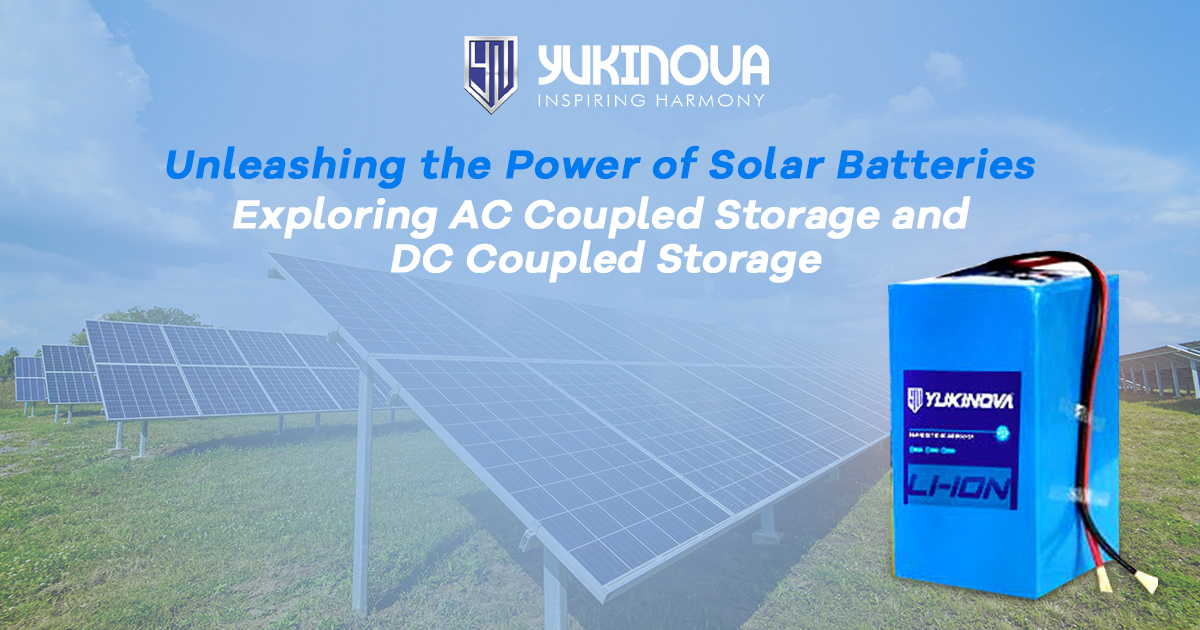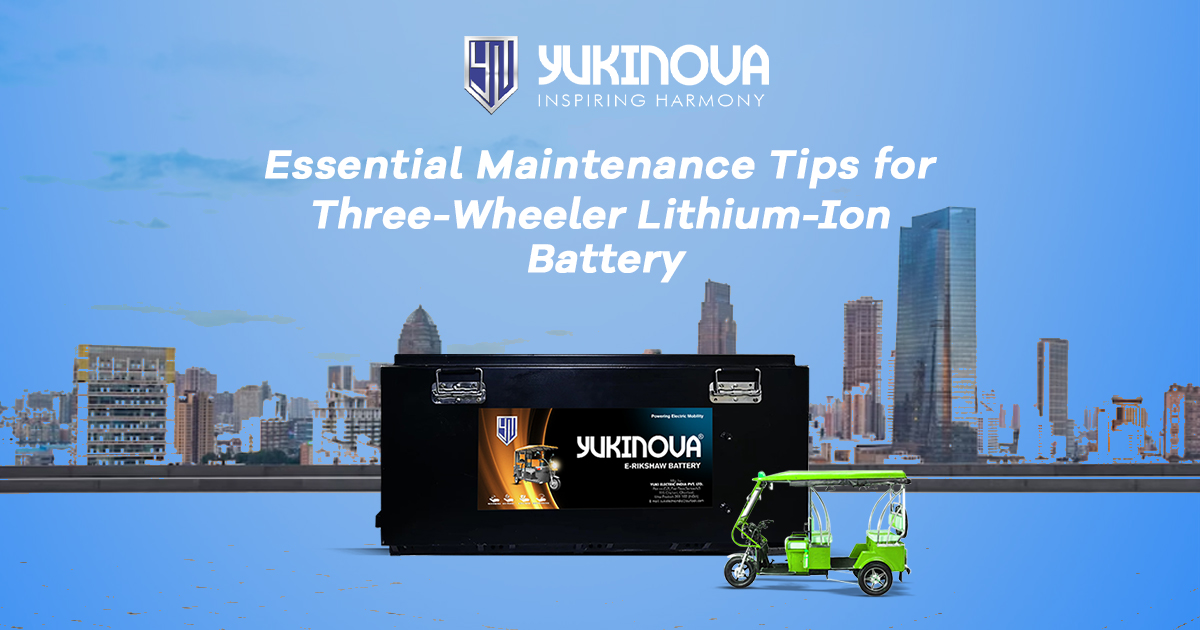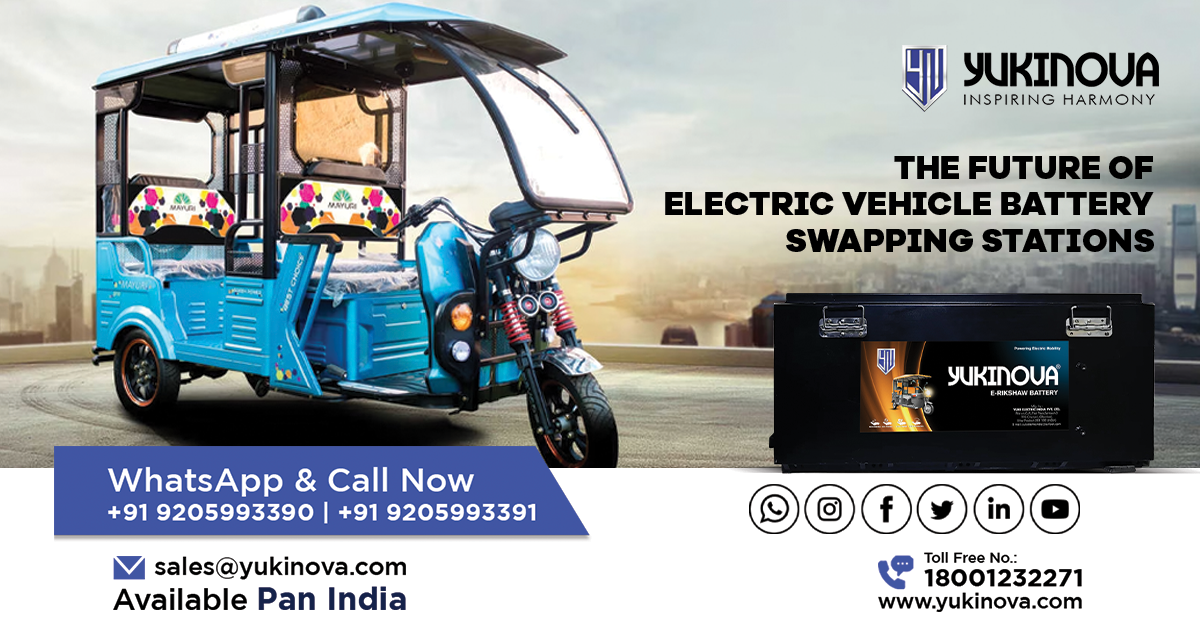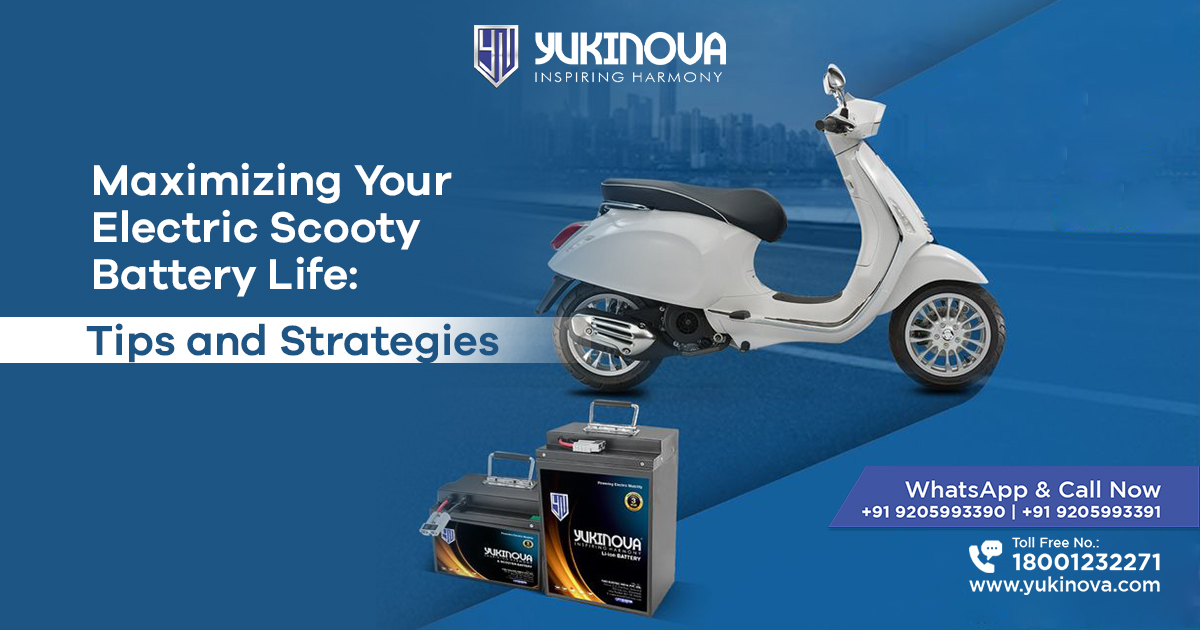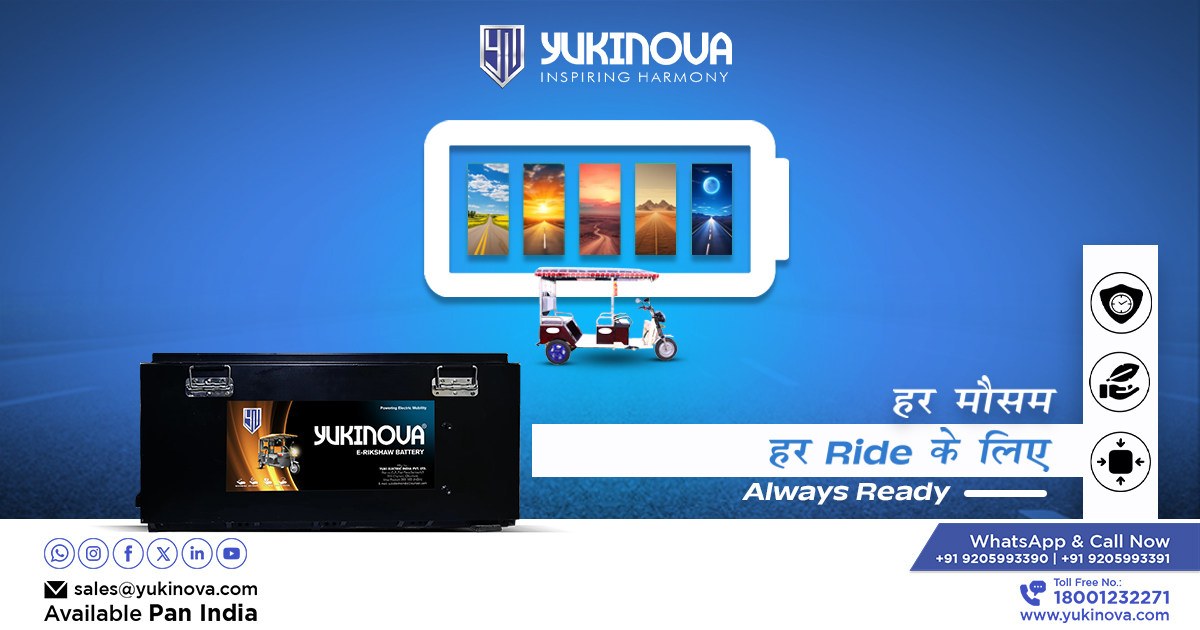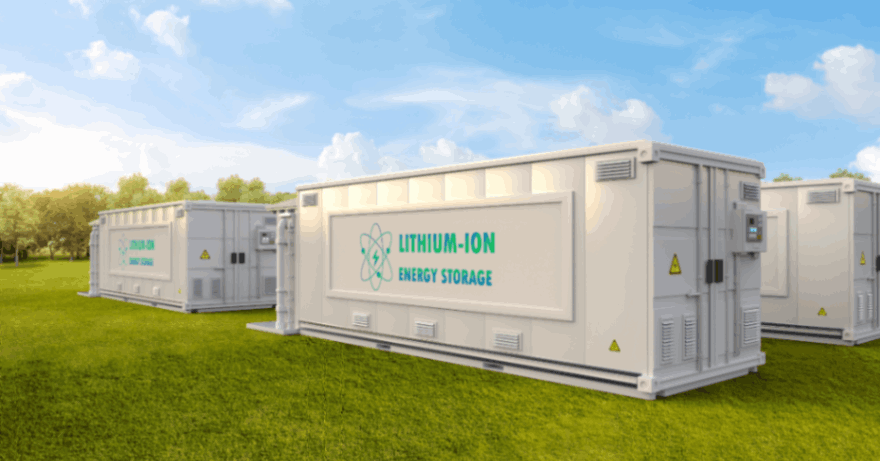In today’s fast-paced world, the demand for efficient and sustainable transportation solutions is on the rise. This has led to the growing popularity of electric three wheelers as a viable and eco-friendly mode of transportation. At the heart of this transformation is advanced battery technology which plays a crucial role in powering these vehicles.
As a trusted three wheeler lithium-ion battery manufacturer, Yukinova is at the forefront of revolutionizing the three-wheeler industry with its innovative energy solutions. With a focus on cost efficiency, enhanced performance, eco-friendliness, and improved safety, lithium-ion batteries are driving the future of electric mobility, and Yukinova is leading the charge towards a greener and more sustainable transportation ecosystem. In this
Cost Efficiency
A. Long Lifespan of Lithium-Ion Batteries: Lithium-ion batteries offer a significantly longer lifespan compared to traditional lead-acid batteries. This translates to reduced replacement frequency and lower overall maintenance costs for three-wheeler operators.
B. Reduced Maintenance Costs: With fewer maintenance requirements and longer intervals between servicing, lithium-ion batteries contribute to cost efficiency by minimizing downtime and associated repair expenses.
C. Lower Overall Operating Costs: The combination of a longer lifespan, reduced maintenance, and lower charging costs makes lithium-ion batteries a cost-effective choice for three-wheeler operators, offering long-term savings and improved profitability.
Enhanced Performance
A. Lightweight Design:The lightweight nature of lithium-ion batteries is well known for lowering the vehicle’s overall weight while also boosting handling and maneuverability for the benefit of both drivers and passengers.
B. Consistent Power Output: Unlike traditional batteries that experience voltage fluctuations during discharge, lithium-ion batteries provide a stable and consistent power output, ensuring smooth and efficient operation of three-wheelers even under heavy loads or challenging terrains.
C. Quick Charging Capability: Yukinova’s lithium-ion batteries are equipped with rapid charging technology, allowing three-wheeler operators to recharge their vehicles quickly, significantly reducing downtime and increasing productivity.
Efficiency
A. Energy Efficient: Lithium-ion batteries are highly energy efficient, converting a higher percentage of stored energy into usable power for propulsion. This efficiency not only extends the vehicle’s range but also reduces overall energy consumption.
B. Sustainable Energy Source: By harnessing the power of renewable energy sources to charge lithium-ion batteries, such as solar or wind energy, three-wheelers become part of a sustainable transportation ecosystem, further reducing carbon footprints and promoting environmental sustainability.
Improved Safety
A. Lower Risk of Fire: Lithium-ion batteries are inherently safer than traditional lead-acid batteries, with lower risks of fire or thermal runaway events, providing peace of mind to operators and passengers.
B. Stable Temperature Operation: Yukinova’s lithium-ion batteries are designed to operate efficiently within a stable temperature range, ensuring optimal performance and longevity even in extreme weather conditions.
C. Built-in Safety Features: With advanced safety features such as overcharge protection, short-circuit prevention, and thermal management systems, Yukinova’s lithium-ion batteries prioritize safety without compromising performance.
Summary
In conclusion, the adoption of lithium-ion batteries in electric three-wheelers represents a significant advancement in the transportation industry, offering cost efficiency, enhanced performance, eco-friendliness, and improved safety. Yukinova’s commitment to innovation and sustainable energy solutions positions it as a key player in shaping the future of electric mobility, powering a greener and more efficient transportation ecosystem.
